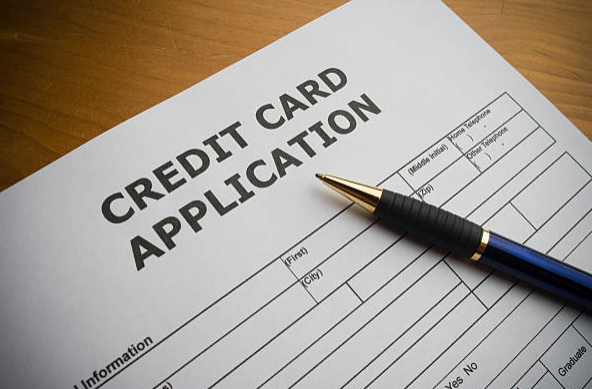10 things to know before getting first credit card

There are still millions of people who are afraid of affecting their finances with the use of a credit card, even though there is another group that enjoys its benefits without going into debt and fulfilling their financial dreams.
If you want to take the step of getting your first credit card, then listed below are 10 things you should know about its features and operation so that you are encouraged to enter the finance world.
1. Your first credit card is essential for your credit history
This is one of the main reasons why many people are afraid of getting a credit card. However, they do not think that just as you can irresponsibly make it worse, you can build an excellent credit history and credit score that will allow you to access personal, auto and mortgage loans with higher amounts. Timely payments and the type of use you make of them are paramount for your credit to grow.
2. A secured credit card is a good option
Obtaining a first credit card may not be so easy and may generate doubts to financial institutions. But there is also the option of a secured credit card which allows you to have greater control of your finances and enter the world of credit with greater security.
Secured credit cards have the characteristic that you need to make a cash deposit, usually upto $500 dollars, which also serves as a credit limit and also protects financial institution in the event when card owner do not comply on repayment.
It is important to know that, if you debt is paid through the deposit, then you will never build trust and your credit score and credit history may also be affected because it assumes that you do not know how to manage credit and your debts.
3. Understand the fees
Legally, credit card issuers must disclose their interest rates and fees to consumers. The rates that the different card options in the market usually handle are:
- Annual fee: This is a flat rate that is usually charged annually to the cardholder.
- APR: Is the annual percentage rate. It is the interest rate that the customer will pay on the balances he/she has from month to month.
- Foreign Transaction Fees: are fees charged that apply to purchases made outside the U.S.
- Payment fees: A penalty charged when you pay late or fail to meet even the minimum payment due on your debts.
4. There are avoidable fees
While you can’t avoid fees on all credit cards, it’s good to consider this information so you can ask your issuer, if they provide following options:
- If there is any card with no annual fees
- If there is no late fees when minimum amount is paid.
- If there are cards do not charge foreign transaction fees
Card holder should also:
- Avoid balance transfers and cash advances on credit cards. Also note that, the vast majority of offers on the market no longer have fees when you exceed your credit limit.
5. Pay more than the minimum
If you are going to start down this financial path, you should be clear that you should always pay more than the minimum. Why should you? Because the statements manage an amount to support you in your financial payments and guarantee that with that figure you can pay off the debt, even if many years go by and you have paid too much interest over time.
The minimum generally covers last month’s interest and fees (if applicable) and only a small amount of the underlying balance. Paying more than the minimum carries principal to your balance and not interest, which results in you paying off your debt in less time and, therefore, paying less interest.
6. Interest is avoidable
No matter how much your credit card APR is, you can avoid paying a penny in interest. How? By paying your bill in full every month. This is called your card’s grace period. After you pay your bill in full, interest does not accrue on new purchases until the next due date.
So, when you don’t pay your bill in full, that is, if you carry over a portion of your balance to the next month, not only do you pay interest on that accumulated balance, but interest begins to accrue on your new purchases immediately. This is how if you do not take care of your purchases, your debt can expand to unimaginable numbers.
7. Paying late can become a nightmare
These are the high costs you can rack up on a debt, no matter how small:
- Late payment fees: as mentioned, there are penalties for falling behind on your payments.
- Penalty APR: although not all cards have it, but those that do, can increase your interest rate to 30% or more for new transactions.
- Damage to your credit: one day late may not affect you, but if it adds up to 30 or more days late, your credit report and credit score will suffer.
8. Stay away from your credit limit
Credit cards have a limit on the amount you can borrow. For example, on a card with a $2,000 limit, using your plastic for $1,500 or closer and closer to that amount starts to work as a red flag on your report and can lower your credit score.
That is why it is suggested that you try to use less than 30% of your limit at all times so that your credit score always remains healthy and reliable in the eyes of other lenders.
9. The best cards are not for beginners
Great rewards, cash back, low interest, sign-up bonuses or 0% interest periods are some of the juicy perks we should make you realize you won’t be able to access right off the bat. But if you begin to manage a credit card as we pointed out in the previous points, you will soon be able to aspire to this type of attractive promotions.
10. If you’re turned down, you’ll know why
In some countries, e.g. USA, federal law requires card issuers to send you an explanation of their decision. This is called an adverse action notice, where they will tell you the reasons why you were not accepted. This may include having too low an income, not having a credit history or not meeting another requirement for them. Having this clarification will let you know how to move forward so that you can soon apply for your first credit card.
Author Bio:
I am Nikesh Mehta, owner and writer of this site.

I’m an analytics and digital marketing professional and also love writing on finance and technology industry during my spare time. I’ve done online course in Financial Markets and Investment Strategy from Indian School of Business. I can be reached at nikeshmehta@allonmoney.com or LinkedIn profile.



